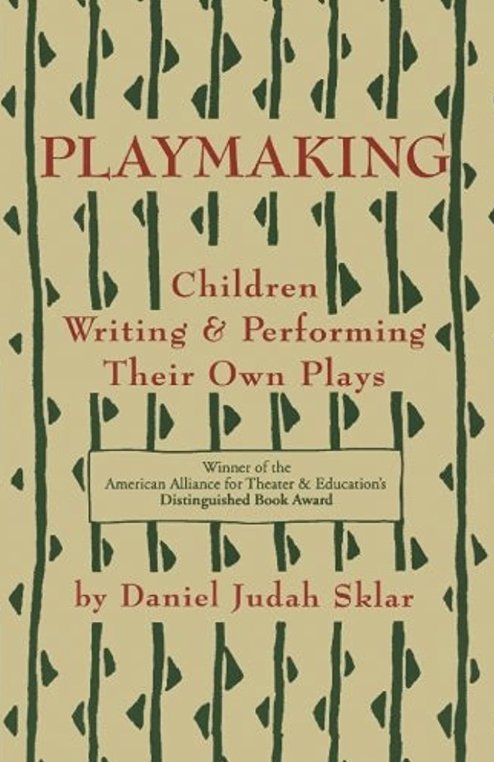A significant note after reading "Playmaking" by Daniel Judah SklarSo an interest in writing skills often depends upon the success of the improvisations. And good improvisations often happen after a break from traditional classroom thinking.
When we pay attention to our breath, we can then begin to use our muscles, senses, and even our feelings in a new way. Most children memorize the Five senses in the second or third grade. They also, of course, understand seeing, hearing, touching, tasting, and smelling. But few connect the lesson with everyday experiences. Fewer still realize they can control those experiences. And almost none understand that memories of those feelings make their acting and writing fuller and richer. The writer or actor or artist learns to pay attention to them and trust his or her memory. Children often express their feelings more directly than adults but they are also quicker to lose control, often allowing the feelings to feed upon themselves, creating chaos, making listening impossible, and sometimes causing serious disturbance. As actors and writers, children learn to develop, harness, and enjoy their feelings. Theater games make the harnessing process not only feasible but also fun. From sound and motion we moved to improvisation. Stanislavsky and his disciples use improvisation extensively. Improvisation also serves as the cornerstone of Creative Dramatics. The emotion can then be used to enliven a scene. It's an effective technique, first articulated by Stankslavsky. Once the kids hand worked with their bodies, senses, and feelings, they began creating characters. Good writing always begins with genuine interest. Playmaking, I decided, develops an approach, not specific plays or solutions to problems. It teaches kids to explore. He or she can learn how to explore feelings. And dramatize them in a credible way. Theater is not therapy. Working on a character as a writer or actor, we deal with feelings, but always in the context of the play or the exercise. Those activities often haven therapeutic value, but that should remain secondary. And if moments ascend into art. Conflict from insults and violence to constructive understanding, that might be lead to nice plays. Writing monologues. It allowed the kids to broaden and deepen their characters, to find their respective voices-thereby moving from cliches and stock types to the special and compelling. By next week you should all write three images you do not understand: something that happened to you something you saw or heard something you dreamed The introduction of dreams caused a big stir. Almost all the kids remembered dream images. A character based on you. A day-in-the-life tells what happens to a character in a typical day. Good writers listen to their characters. You have to let them act-do things. That's what will make your work come alive: your characters listening to each other, reacting to each other. If you plan too much ahead, you'll be pushing them around. And they'll be puppets, not characters. So start with the first line and let the characters lead. They'll take you back to your baffling moment and help you to understand it. It's going to be a long road, but you'll get there-if you set them free. Don't worry about the story, the plot. It' ll come in its own good time. Many writers are always experimenting to find other ways, new ways. They are what's called the avant-garde, which is French for out ahead. But before they find new ways, they learn the old ways. Playmaking expressions made the kids feel better about themselves and would foster more directness, more action, and more self-respect. As different as they were in socioeconomic background and age, they all responded to the director's role and found a new part of themselves. As actors you have to listen, and if you do, your reactions will be true and powerful. And never boring. First read the lines slowly, making sure you understand what the character's saying and how he or she feels about it-and why he or she is saying it right now. If you really understand in the beginning, it cuts the memorizing time in half. Next, read it with another actor, and listen to the other characters' lines that come before and after. If you understand what they say and why they say it, that makes memorizing easier, too. The producer must build that belief and responsibility.
0 Comments
Leave a Reply. |
Myungja Anna KohArtist Categories
All
Archives
July 2024
|
Proudly powered by Weebly


 RSS Feed
RSS Feed